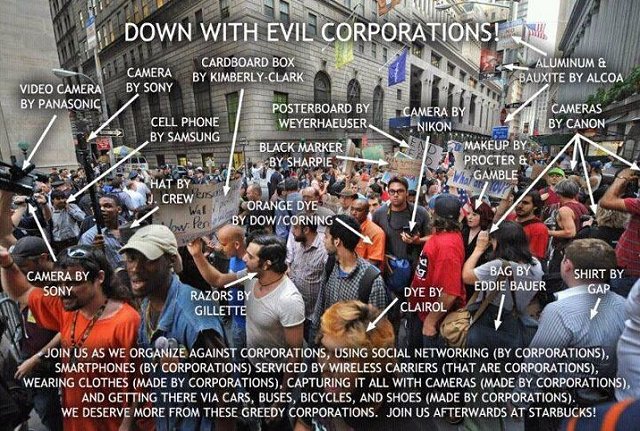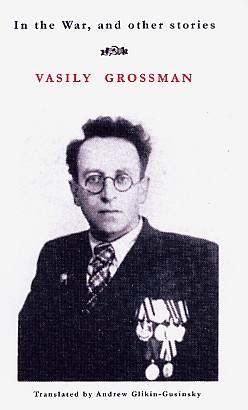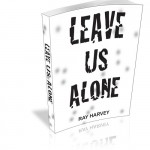 The so-called Wall Street Protesters have posted a list of grievances, ostensibly to codify all the things they’re against, and if, heaven help you, you take the time to actually read that list — grammatical errors and all — I predict you’ll no longer be in any doubt that these people are truly Anarchists For Big Government.
The so-called Wall Street Protesters have posted a list of grievances, ostensibly to codify all the things they’re against, and if, heaven help you, you take the time to actually read that list — grammatical errors and all — I predict you’ll no longer be in any doubt that these people are truly Anarchists For Big Government.
Here’s an example, taken from their website:
Demand one: Restoration of the living wage. This demand can only be met by ending “Freetrade” by re-imposing trade tariffs on all imported goods entering the American market to level the playing field for domestic family farming and domestic manufacturing as most nations that are dumping cheap products onto the American market have radical wage and environmental regulation advantages. Another policy that must be instituted is raise the minimum wage to twenty dollars an hr.
Why not just make the minimum wage $50.00 an hour? Or $100.00? Money, after all, doesn’t actually need to be produced. Businesses just have it. Therefore, businesses can pay any amount demanded. Also, as Ryan Young of OpenMarket.org articulately explains:
Take as true that importing goods across international borders kills jobs. Well, as a matter of logic, importing goods across state borders is no different. Oregonians should be forbidden from importing goods from Californians. Inter-city free trade has the same harmful effects. Consistency demands banning that, too. Even inter-household trade kills jobs under this line of thought.
And of course, one of the main things these protesters are against is “corporations” — this despite the fact that they don’t have any good idea of what a corporation really is.
As I wrote in Leave Us Alone:
Any business, no matter its size, can become incorporated.
Incorporated simply means that businesses draw up contracts, known as the Articles of Incorporation, which contain information about intended activities of the upstart business and also the intended financing. The state then issues a certificate of incorporation, at which point the certificate becomes an enforceable contract….
The present-day model of the American corporation began right after the Civil War, with the development of the trust movement. The trust movement was against the existing laws, imposed by the state, which made the formation of corporations extremely costly and difficult. It took a special act of legislation to deregulate, so that following the Civil War, this new legislative act made it possible for private corporations to combine with one another, via stockholders, turning their shares to “trustees.” This is all private, contractual, and voluntary.
Under the trust arrangement, stockholders of separate corporations can and will turn their shares over to trustees, who then have the power to vote the shares and run the incorporated business. By assembling the shares into the hands of the same trust, it’s possible and perfectly legitimate to run the corporation as a single unit.
The protesters have said (and I quote): “We’re tired of Big Money dictating what [government] programs get funded.”
Really? Is Big Money, then, funding over two-thirds of the federal budget that’s spent on social security, medicare/medicaid, unemployment checks, welfare, food stamps, public schools, and so much more (all of which, incidentally, dwarf national defense spending)?
The answer is no. We the taxpayers are funding these profligate and endless programs, which the Wall Street protesters are calling for more of.
Here’s another question I have: if corporations are so powerful and Machiavellian, why hasn’t corporate money stopped the above-mentioned federal spending — which spending, for the record, is what’s driving the crushing national deficit we’re all laboring under?
As Mark Levin sensibly asks:
• Who’s the biggest health insurer in the country?
• Who’s the biggest bank in the country?
• Who’s the biggest land-owner in the country?
• Who runs the biggest retirement plans in the country?
• And who alone has the force of law to force you to comply with their decisions?
Answer: the federal government.
Reader, make no mistake: the philosophical underpinnings of these protesters are socialistic to the gills.





